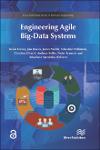Search
Author
- Davies, Jim (1)
- Feeney, Kevin (1)
- Nielson, Flemming (1)
- Sands, David (1)
- next >
Subject
- formal methods (2)
- access control (1)
- anonymity (1)
- artificial intelligence (1)
- next >
Date issued
Has File(s)
- true (3)
Search Results
To be effective, data-intensive systems require extensive ongoing customisation to reflect changing user requirements, organisational policies, and the structure and interpretation of the data they hold. Manual customisation is expensive, time-consuming, and error-prone. In large complex systems, the value of the data can be such that exhaustive testing is necessary before any new feature can be added to the existing design. In most cases, the precise details of requirements, policies and data will change during the lifetime of the system, forcing a choice between expensive modification and continued operation with an inefficient design.Engineering Agile Big-Data Systems outlines an approach to dealing with these problems in software and data engineering, describing a methodology fo... |
This open access State-of-the-Art Survey presents the main recent scientific outcomes in the area of reversible computation, focusing on those that have emerged during COST Action IC1405 "Reversible Computation - Extending Horizons of Computing", a European research network that operated from May 2015 to April 2019.
Reversible computation is a new paradigm that extends the traditional forwards-only mode of computation with the ability to execute in reverse, so that computation can run backwards as easily and naturally as forwards. It aims to deliver novel computing devices and software, and to enhance existing systems by equipping them with reversibility. There are many potential applications of reversible computation, including languages and software tools for reliable and recov... |
This open access book constitutes the proceedings of the 8th International Conference on Principles of Security and Trust, POST 2019, which took place in Prague, Czech Republic, in April 2019, held as part of the European Joint Conference on Theory and Practice of Software, ETAPS 2019.
The 10 papers presented in this volume were carefully reviewed and selected from 27 submissions. They deal with theoretical and foundational aspects of security and trust, including on new theoretical results, practical applications of existing foundational ideas, and innovative approaches stimulated by pressing practical problems. |



